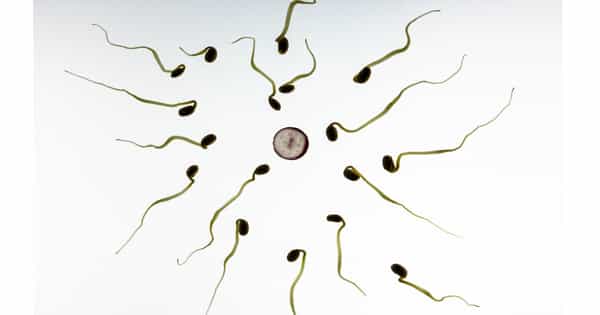Contraception, also known as birth control, is critical in reducing unintended pregnancies and abortions, as well as improving maternal health and lowering infant mortality. Because of their convenience and non-invasiveness, oral contraceptive pills are particularly popular. They are, however, currently only available for women, which begs the question, where are the pills for men?
Despite scientific advancements, men’s birth control options are still limited to condoms or vasectomy. There are also options for wing-and-a-prayer, such as pulling out (withdrawal) and outercourse. A group of scientists from the United States and China recently reported the discovery of a compound that, rather than completely suppressing sperm production, disables the function of sperm in mice and monkeys.
The Lundquist Institute (TLI) Investigator Wei Yan, MD, Ph.D., and his research colleagues describe an innovative strategy that resulted in the discovery of a natural compound as a safe, effective, and reversible male contraceptive agent in pre-clinical animal models in a new paper published by Nature Communications. Despite enormous efforts over the last several decades, progress in developing non-hormonal male contraceptives has been slow.
A new article spells out an innovative strategy that has led to the discovery of a natural compound as a safe, effective, and reversible male contraceptive agent in pre-clinical animal models.
Triptonide is the compound in question, and it can either be extracted from a Chinese herb called Tripterygium Wilfordii Hook F or synthesized chemically. Single daily oral doses of triptolide cause altered sperm with minimal or no forward motility and near-complete penetrance, resulting in male infertility in 3-4 and 5-6 weeks. When the treatment is stopped, the males become fertile again in 4-6 weeks and are capable of producing healthy offspring. There were no discernible toxic effects in either short- or long-term triptonide treatment.
Triptonide appears to meet all of the criteria for a viable contraceptive drug candidate, including bioavailability, efficacy, reversibility, and safety, according to all of their data. Triptonide appears to target one of the final steps in sperm assembly, resulting in the production of altered sperm lacking the vigorous motility required for fertilization, according to a battery of biochemical analyses.

“Decades of basic research inspired us to develop the idea that a compound that targets a protein critical for the last several steps of sperm assembly would lead to the production of nonfunctional sperm without causing severe testicular cell depletion,” Dr. Yan said. “We are overjoyed that the new idea worked and that this compound appears to be an excellent male contraceptive. Triptonide appears to be an effective treatment for human males based on our findings in non-harmful studies on lower primates. We hope to be able to begin human clinical trials on the non-hormonal male contraceptive soon.”
“Dr. Yan’s discovery represents a significant step forward in the field,” said Drs. Christina Wang and Ronald Swerdloff, TLI co-Principal Investigators who are leading NIH-funded advanced clinical trials on hormone-based birth control approaches. “The more contraceptive methods available, the better,” Wang and Swerdloff emphasized. “We will want a family of pharmaceutical products to safely and effectively meet the family planning needs of men and couples at different stages of their reproductive lives, with varying ethnic, cultural, and religious backgrounds, and economic means.”
The researchers then attempted to determine how triptonide rendered sperm inactive. They examined the compound’s ability to bind to every protein found in the testis of mice and discovered that triptonide could bind to a protein called junction plakoglobin (JUP). JUP is a protein that interacts with and assists other important proteins in the sperm during the final stages of sperm cell development, also known as spermiogenesis. Thus, binding to JUP disrupts its function, affecting other critical proteins during sperm cell development and ultimately resulting in a defect in the final produced sperm cell.
This discovery not only shed light on the mechanism of triptonide, but also opened up a whole new avenue of male contraceptive development: we now know that in addition to the traditional approach of suppressing sperm production, targeting spermiogenesis may be a viable method for future drug development.
Overall, triptonide was identified as a promising male contraceptive drug candidate in this study. Despite the fact that this compound has yet to be tested in humans, the findings of this paper were useful in confirming the approach of disabling sperms, rather than suppressing sperm production, for male contraceptives. This could potentially broaden the scope of male oral contraceptive pill research and development.
Currently, women bear the majority of the burden of contraception, which unfairly forces women to bear the brunt of any financial, health-related, or social stresses associated with contraception. With a promising drug candidate for a male oral pill on the horizon, a more equitable contraceptive arrangement may be on the horizon.
















